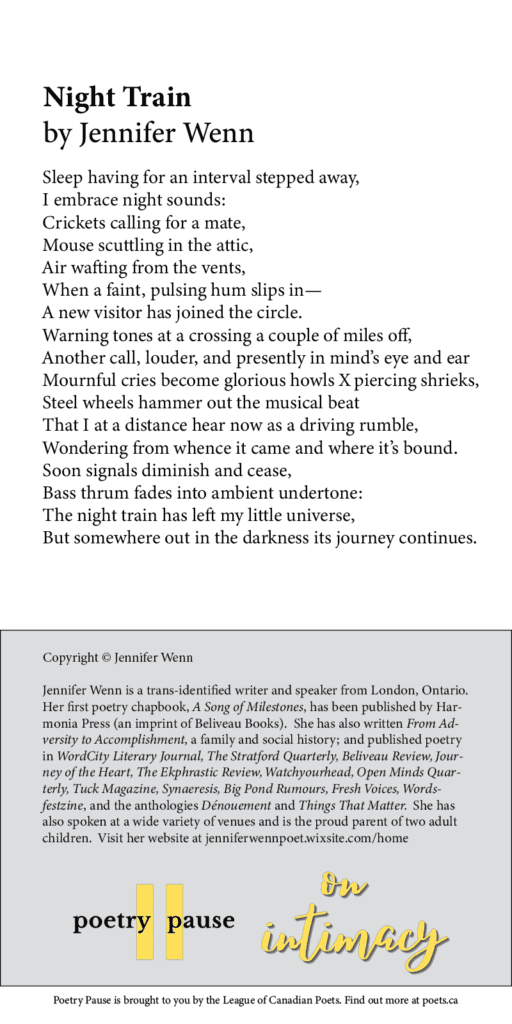NPM22 Blog: Poetry: An Intimate Journey by Jennifer Wenn
As the pandemic stretches into its third year (with, we all hope, an end in sight), the multifaceted and crucial phenomenon of intimacy has become a focus for many of us. In some cases we have perhaps become overly familiar with the same surroundings or people; many other times there has been deprivation due to the either the inability be with others, or to find a meaningful outlet for intimate expression, or both.
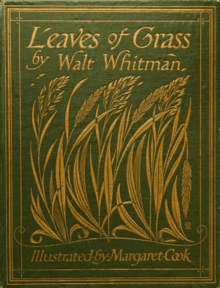
This expression has, of course, always taken various forms, ranging from physical sensuality to spiritual communion. And we have always found great meaning in writing and reading about it. Poetry has time and again proven itself an invaluable and tremendously varied vehicle in this endeavour. By way of example, start, perhaps, with the ground-breaking earthy exuberance of Walt Whitman (this excerpt is from section 5 of Song of Myself, from the 1892 edition of Leaves of Grass)[*]:
I mind how once we lay such a transparent summer morning,
How you settled your head athwart my hips and gently turn’d over upon me,
And parted the shirt from my bosom-bone, and plunged your tongue to my bare-stript
heart,
And reach’d till you felt my beard, and reach’d till you held my feet.
A much different, but no less striking, approach was employed by Emily Dickinson, who was definitely more subtle and elliptical, but no less passionate. One lovely instance coupling sexuality and mortality follows (poem 829 by Johnson’s numbering, the version in Emily Dickinson’s Poems As She Preserved Them, edited by Cristanne Miller):
Ample make this Bed
Make this Bed with Awe
In it wait till Judgment break
Excellent and Fair
Be its Mattress straight
Be its Pillow round
Let no Sunrise’ Yellow noise
Interrupt this Ground.

Finally, one could reach much farther back into the past to ancient Greece, and another female poet, namely Sappho, who has sadly only come down to us only in some precious fragments and a few whole poems. From fragment 31, translated by Willis Barnstone:
….Now
when I look at you a moment
my voice is empty
and can say nothing as my tongue
cracks and slender fire races
under my skin. My eyes are dead
to light, my ears
pound, and sweat pours over me.
I convulse, greener than grass
and feel my mind slip as I go
close to death.
The relationship of poetry and intimacy goes much further than direct expression of desire and consummation, however. As I think those examples also show, poetry at its best is a peerless dance with language to the music of emotion, a singular experience that has intimacy at its very core, whether one is the audience or, even more, the creator. In my case I didn’t write poetry at all until I was nearly 58, in the summer of 2017 (noting that my university education was in Computer Science). The major reason was that I simply couldn’t because major parts of my spirit were, for most of my life, simply inaccessible. But let me back up.
I am a transgender woman, but realizing that took a very long time. There were clues during childhood, including one very difficult encounter with near self-harm (“a dance on the razor’s edge” in my phrase from Scarlet Letter, part of my chapbook A Song of Milestones) but I didn’t understand or even have the vocabulary and this was all buried except for
intimations of a primordial incompatibility,
seen in fleeting glimpses like evanescent
will-o’-the-wisps amidst a marsh,
(from my poem Intimations of Incompatibility, part of A Song of Milestones).
I was suddenly able to see it all clearly when I was 18, but this didn’t last:
For a moment, the inception laid bare,
for a moment, the dream tangible.
In the next, freighted down by custom and terror,
dragged by shame’s dead hand,
the vision sank back into the inky depths,
leaving not a ripple…
(from Intimations of Incompatibility).
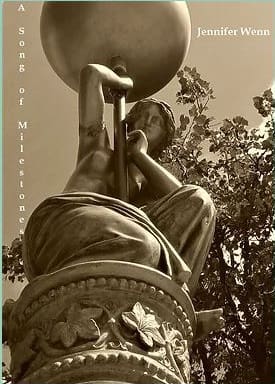
And when that vision, that awareness, vanished, it took a critical part of me with it down into those depths “where my music lay chained and submerged” (from my poem I Have a Voice, part of A Song of Milestones). I did a lot of reading over the years (and decades), mostly non-fiction, but some fiction and poetry too. A few things in the last category resonated and stayed with me: Tennyson’s Charge of the Light Brigade (“Cannon to right of them,//Cannon to left of them,//Cannon in front of them//Volleyed and thundered…”); Poe’s The Raven (“Once upon a midnight dreary, while I pondered, weak and weary,//Over many a quaint and curious volume of forgotten lore—“); Frost’s The Road Not Taken (“Two roads diverged in a wood, and I—//I took the one less traveled by,//And that has made all the difference.”); and just about anything from Shakespeare’s plays. However, I suppose you could say that I lacked intimacy with myself, leaving my poetically creative core unreachable and rendering me significantly impaired in my ability to truly connect with poetry in general.
And then along came Whitman and Leaves of Grass, when I was in my mid-thirties. Rediscovering my gender identity was still a ways in the future, but he gifted me an extraordinary poetic vision that helped build a crucial inner bridge. From “One’s-self I sing, a simple separate person” through “I celebrate myself and sing myself” and “I sing the body electric” to “Good-bye—and hail! my Fancy” I was enthralled, although it took two or three readings for me to more fully appreciate it. After I started writing poetry, one of my earliest pieces was in part a tribute to him (below are two excerpts from Whitman/Monet):
The Poet, with your vocabulary, your lists,
Exulting the everyday, but seeing
Much more through and beyond,
Joyfully singing the body electric,
Claiming all humankind as brothers and sisters,
Dancing through time,
Immersing in your Leaves becomes wonderful meditation.
One, a painter with language,
The other, a poet with brush and canvas,
Two great spirits entwined by
Profound vision and seductive simplicity.
I claim you as muses, as ideals,
Not to be achieved, but, perhaps,
Approached, in my own way.
This was indeed wonderful, and more meaningful as time went on, but it would take additional time and more twists and turns until my gender identity fell on me in the fall of 2012 like an anvil (or, perhaps, a giant book); or, to quote from Looking-Glass (also part of A Song of Milestones):
And whirling right through the mirror
not into a dream world but out of it,
there in one shattering moment to find,
hibernating,
waiting for affirmation,
waiting for life to finally, truly, begin,
just one extraordinary being:
Jennifer.
I now began to access parts of me long hidden, and with that increasing self-intimacy I was able to speak about deeply personal things in a way previously impossible, my first public speech being in April, 2015. These were, indeed, major milestones, but most certainly not the last ones. The voyage was, and continued to be, quite difficult and extraordinary, but, to quote from that first speech “you carry on, and go forward, because deep inside you know that, as hard as it is, this is your path, this is your chance at feeling whole. The other road, continuing to try and deny who you are, is one you instinctively realize leads quite literally nowhere.” (this excerpt was also included in I Have a Voice)
My creation of poetry came along, as mentioned, in the summer of 2017, after a few more pushes from different directions. Once I started writing, and, also critically, being able to follow Whitman’s bridge and truly engage with poetry, I found that it provided a unique mechanism to go farther inside my gender journey, to portray it on deeper emotional, psychological and spiritual levels; indeed to try and pull the reader or listener inside my mind and spirit and feel a bit more from that vantage point.
One result was my published (in 2019) poem cycle A Song of Milestones, from which I have been quoting. This consists of a Prelude and ten further sections forming a multi-faceted tour of that gender journey. The title and overall structure are of course inspired by Whitman’s dazzling Song of Myself, and each piece has one or more literary touchstones as foundational referents. Beginning my poetic path, and writing A Song of Milestones in particular, were deeply meaningful and, well, intimate experiences; the initiation is perhaps best described in the cycle’s final section, Phoenix:
And then, through the suffocating gloom
creep tendrils of light:
Comfort from some who have walked
many miles beside me;
New friends found in unlikely places;
Healing found in the patient, calm souls of trees
and the dancing, gentle spirits of birds,
all whispering hymns of serenity;
Precious balm found in art,
Mystical Landscapes triggering
sunlit reflections to pierce the dark;
Startled by glorious Carmanah Walbran,
sacred realm of primeval forest giants,
bursting through my memory’s vault
and calling for expression;
Startled by the unlocking, deep within,
of another door,
my voice modulated again,
evolved, revolutionized, poeticized,
verses piling up in my soul’s inbox.
Sweet, stolen hours spent translating the cosmic emails
while life’s noise abates,
psychological demons retreat,
physical ghouls slacken their grip,
while pain transmutes to poetry,
nothing existing except me and the phrases.
Floating in union in an eternal present,
I am suffused in a power and peace
dreamt-of but not hoped for.
Personally, I have continued to find that poetry provides me with the best, or sometimes only, means to even connect with certain emotions and memories, let alone share them with others. A more recent example of this truth would be my cycle Auschwitz Threnody, a belated attempt to come to terms with having experienced (back in 2005) that infamous place (from Inception: “Ghastly residue of incomprehensible evil,//a realm of petrified torment and death and sublime heroism//and ghosts in staggering numbers;//every square inch, every stone,//the air itself, a holy cemetery;//a shrine of hallowed memory”). And, of crucial importance, to honour “…all of the victims and survivors whose suffering and courage transcends all understanding” (from the epigraph).
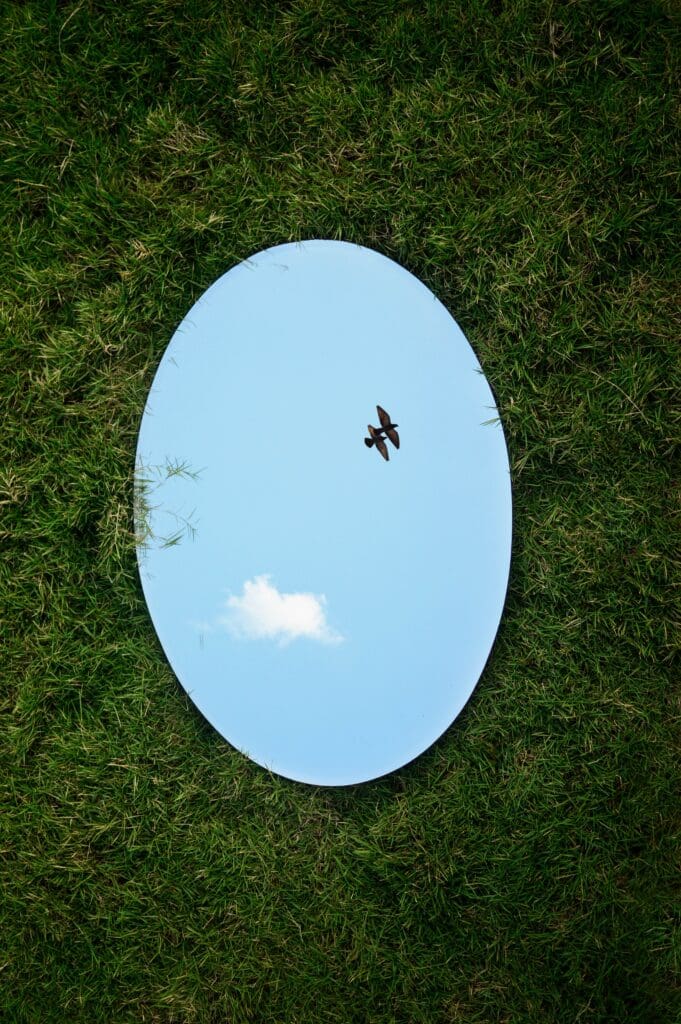
But for the longest time I lacked the self-intimacy to be able to approach this at all (from Inception: “I saw, I heard, yet couldn’t process, not really,//not then, not even for long afterwards”). In the end, poetry was crucial in building a bridge I could follow, a journey sketched in Envoi:
engulfed in a stupefying cloud,
eyes yet to see,
ears yet to hear,
spirit yet to feel,
but in time the shadows
slipped in and around,
whispering, persistent,
swelling to a haunting, ethereal chorale,
and, finally, soul to paper
attempted,
There were, of course, serious limits to what I could do:
but I was not there, in
Elie Wiesel’s kingdom of night, as he was,
I did not see, in his words,
the old men and women whispering the ancient prayers…
the children, frightened and forlorn,
all part of a nocturnal procession walking towards the flames,
rising to the highest heavens
I did not walk with those
whose bodies survived but whose spirits
were forever shattered,
(from Envoi)
Nonetheless, I was given a means to try and pull the reader into an intimate space where they might be able to viscerally sense along with me
…a million candles,
their humble flickers melded into one,
a glorious wafery spire of radiance
streaming heavenward through the night
more than a hundred feet high
(from Consider a Million)
Poetry has always provided a powerful vehicle for representing human intimacy in its many manifestations. It is also, in my experience, an intimate phenomenon in and of itself. And to quote Emily Dickinson, “By intuition, Mightiest Things//Assert themselves” (from poem 420 by Johnson’s numbering, the version in Emily Dickinson’s Poems As She Preserved Them, edited by Cristanne Miller); poetry takes me, and, I hope, where my own writing is concerned, my readers or listeners, beyond prose, beyond intellectualization, into that marvelous intuitional realm, to share in a special intimate communion.
[*] I will note in passing that this example and the two following all concern same-sex intimacy, making, in my opinion, all three of these authors revolutionary. With consideration of the complete pieces this is clear in the case of Whitman and Sappho (despite attempts at erasure of their identities). For Dickinson, this is now being more generally acknowledged, given the full context of her life and writings, including letters, which make clear her love for and attraction to her sister-in-law Susan Gilbert.
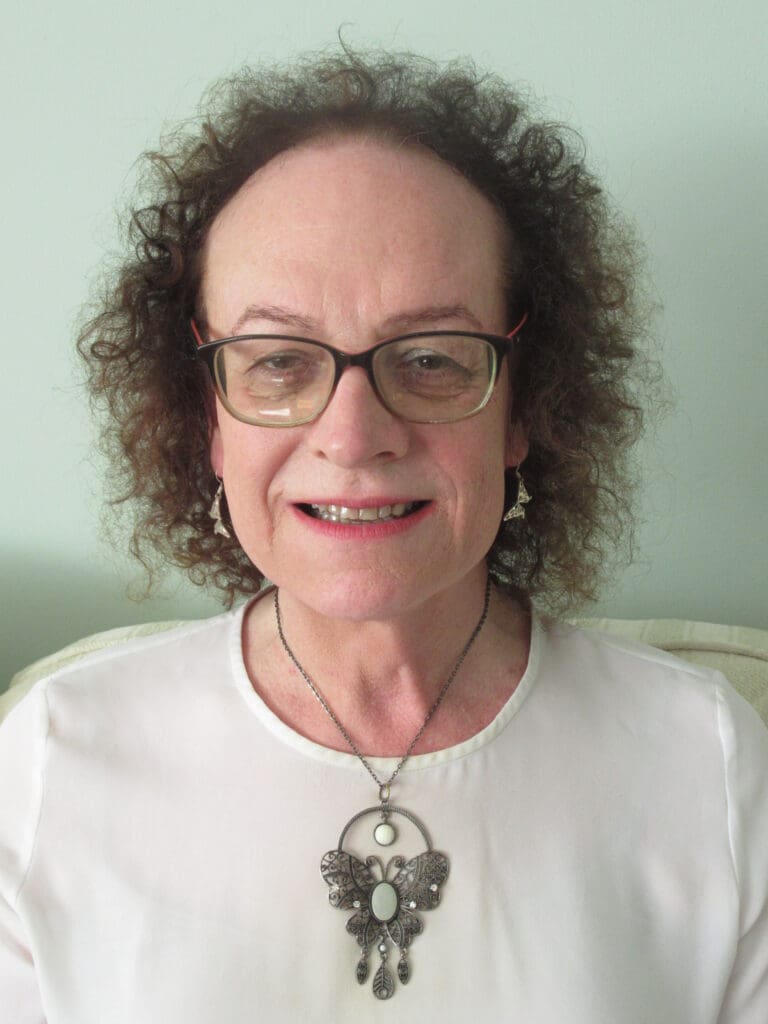
Jennifer Wenn is a trans-identified writer and speaker from London, Ontario. Her first poetry chapbook, A Song of Milestones, has been published by Harmonia Press (an imprint of Beliveau Books). She has also written From Adversity to Accomplishment, a family and social history; and published poetry in WordCity Literary Journal, The Stratford Quarterly, Beliveau Review, Journey of the Heart, The Ekphrastic Review, Watchyourhead, Open Minds Quarterly, Tuck Magazine, Synaeresis, Big Pond Rumours, Fresh Voices, Wordsfestzine, and the anthologies Dénouement and Things That Matter. She has also spoken at a wide variety of venues and is the proud parent of two adult children. Visit her website at jenniferwennpoet.wixsite.com/home
